Lesson 20: Modal Harmony Concluded
Lesson Contents:
- The Other 4 Modes with Their Characteristic Notes:
- Phrygian: b2
- Lydian: #4
- Mixolydian: b7
- Aeolian: b6
- Characteristic Chords and Chord Progressions
- Avoid Chords and Chord Progressions
- A Vamp in A Aeolian
You should read Lesson 19 before
proceeding with this lesson. If you haven't, please do so now. What I present here is the essential information regarding the
remaining four modes: Phrygrian, Lydian, Mixolydian, and Aeolian.
Be sure you study the characteristic chord progressions for each of these modes. In fact, I
encourage you to record yourself playing these progressions and jamming to them. That's where
your real learning will come in and that's how you apply this stuff to your playing - you play it.
Oh, one more thing worth mentioning: the "avoid chord progressions" for all 5 modes
(Dorian, Phrygian, Lydian, Mixolydian, and Aeolian) translate to the ii- V I
chord progression for each mode's relative major key. Never play that progression in a modal context.
You only play it when you want to establish Ionian mode as a tonic.
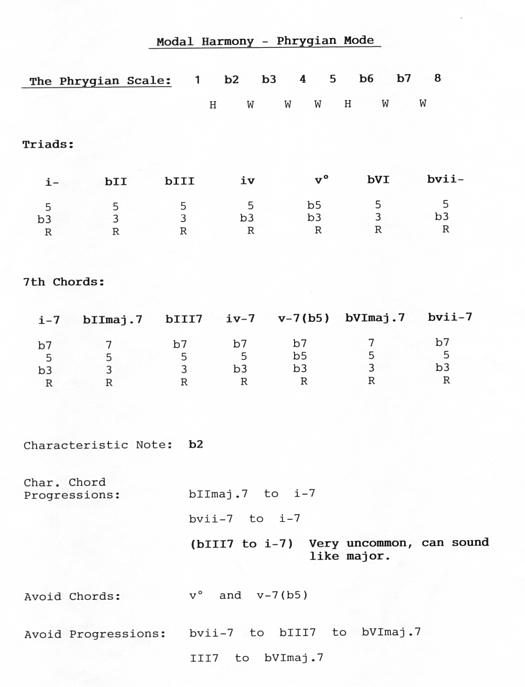
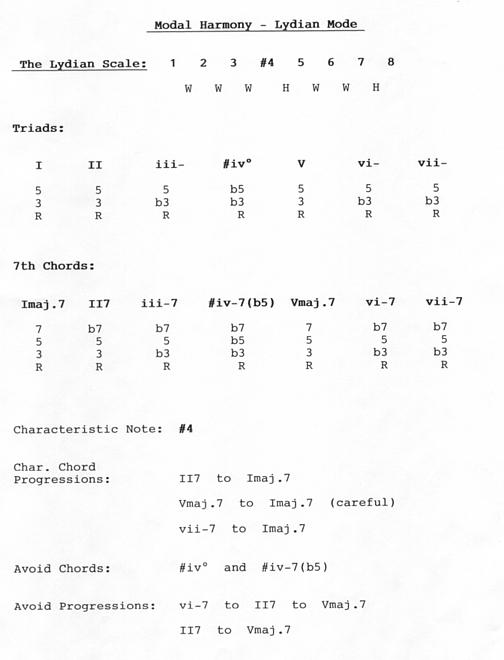
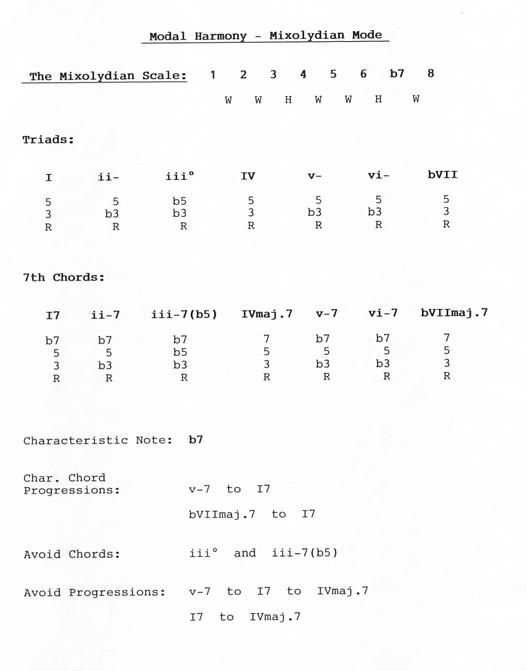
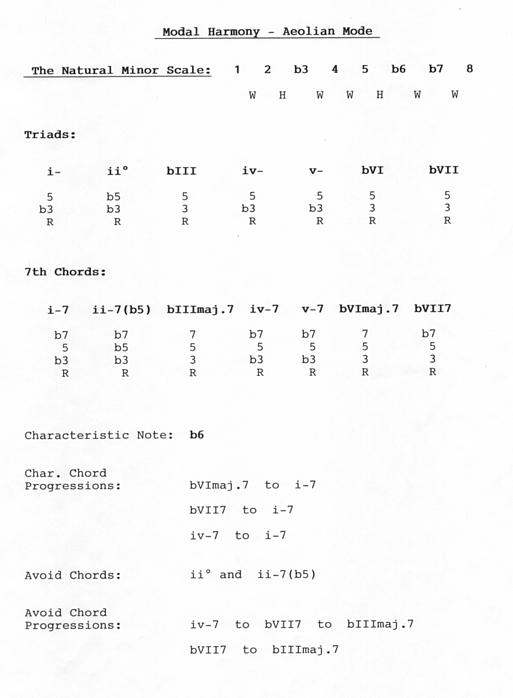 Just like I included a modal vamp in Lesson 3 for C Ionian, I'm including one here for A Aeolian. I really
like the chords for this progression, especially the Am9 (b13) chord. Also, keep in mind,
instead of playing an A-7 chord, you can also play a regular Am chord for variation. (You know what to do
now.) Enjoy.
Just like I included a modal vamp in Lesson 3 for C Ionian, I'm including one here for A Aeolian. I really
like the chords for this progression, especially the Am9 (b13) chord. Also, keep in mind,
instead of playing an A-7 chord, you can also play a regular Am chord for variation. (You know what to do
now.) Enjoy.
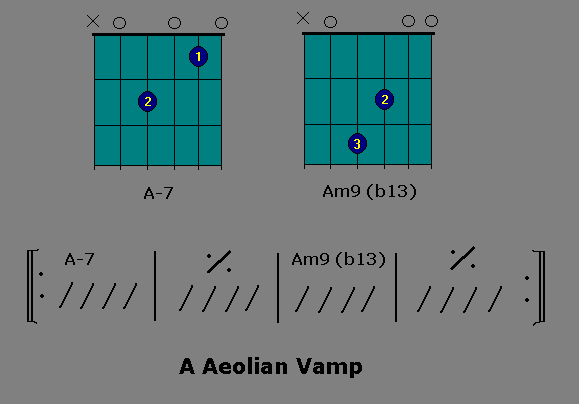
Congratulations, if you've made it this far then you've finished all of the intermediate guitar lessons.
Proceed to the Advanced Lessons main menu page.








